Liz Truss on Laura Kuenssberg show: what did UK prime minister say about 45p income tax rate before u-turn?
and live on Freeview channel 276
Liz Truss has made her first major U-turn as Prime Minister, scrapping plans to axe the 45p tax rate a day after saying she was “absolutely committed” to it.
Despite her and Chancellor Kwasi Kwarteng repeatedly backing their controversial decision to scrap the tax rate for the country’s highest earners, it was today [3 October] announced that they would be abandoning the plans.
Advertisement
Hide AdAdvertisement
Hide AdThis comes after the Government faced severe backlash following the Chancellor’s mini budget announcement, with the decisions outlined (including the scrapping of the 45p income tax rate) plunging the country into economic turmoil. The pound hit a record low, the Bank of England was forced to intervene, and voters and experts alike were criticising the Tories for helping the rich and abandoning the poor.
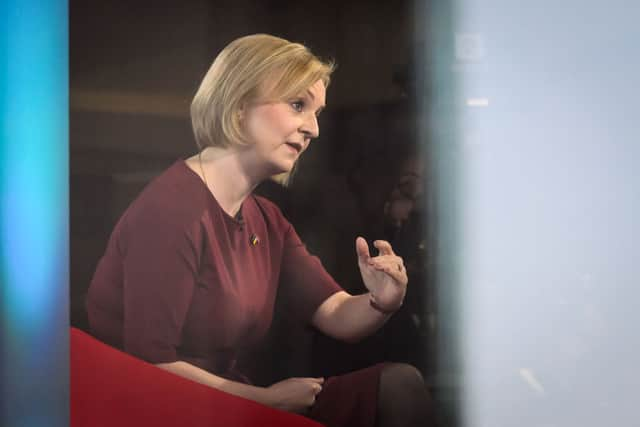

But in a statement released this morning, Mr Kwarteng has now revealed the Government will no longer go ahead with the plans as “it is clear the abolition of the 45p tax rate has become a distraction from our overriding mission to tackle the challenges facing our country”. He also added: “we get it, and we have listened.”
What is now a key talking point for some is the quick turnaround in viewpoints, as the Prime Minister only yesterday told the BBC’s Laura Kuenssberg that they would “absolutely” be going ahead with the abolition.
Here’s what was said just 24 hours ago.
What did Liz Truss say to Laura Kuenssberg about the 45% top rate of income tax?
Given the tumultuous economic landscape the UK had seen in the past few days, it was no surprise that Ms Kuenssberg was keen to chat to Ms Truss about the Government’s tax cuts.
Advertisement
Hide AdAdvertisement
Hide AdShe asked the Prime Minister: “Are you absolutely committed to abolishing the 45p tax rate for the wealthiest people in the country?”
And Ms Truss replied: “Yes. And it is part, Laura, of an overall package of making our tax system simpler and lower.”
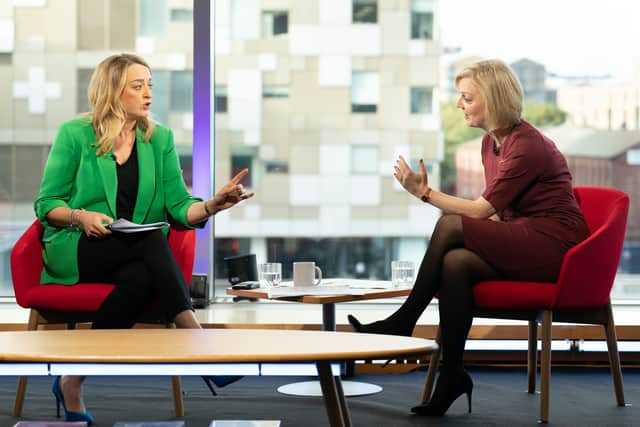

The BBC interview also delved into how the decision to scrap the top rate of income tax was made, with Ms Truss revealing that the plan was not discussed with the wider Cabinet. Instead, she seemingly attributed the responsibility firmly with Mr Kwarteng.
The South West Norfolk MP said: “No, no we didn’t [discuss the move with the whole Cabinet]. It was a decision the Chancellor made.”
Advertisement
Hide AdAdvertisement
Hide AdIn his mini budget announcement, the Chancellor also announced the Government would bring forward by a year the planned cuts to the basic rate of income tax - which, according to estimates from the Treasury, will mean 31 million people get £170 more a year. This cut is still going ahead as of today (3 October).
Moving on to talk through what had happened in the financial markets in the aftermath of the tax cut announcements, Ms Truss admitted that a mistake had been made in how the plans were communicated.
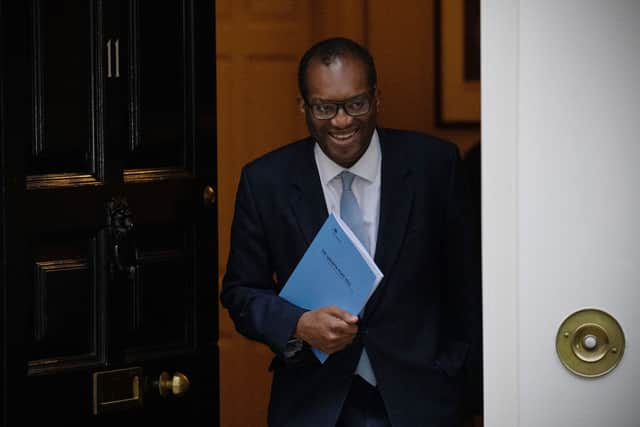

The former Foreign Secretary said she still stood by the package, and stood by “the fact we announced it quickly, because we had to act,” but added that she accepted “we should have laid the ground better.”
She continued: “I have learnt from that and I will make sure that in the future we do a better job of laying the ground.”
Advertisement
Hide AdAdvertisement
Hide AdStill on the topic of preparations, Ms Truss said the Government “simply didn’t have time” to publish data from the Office for Budget Responsibility alongside the mini budget, explaining in a reference to the cost of living crisis that this was because “it was a very urgent situation”. Economists have criticised the Government for not ensuring there was an official analysis of the impact that the ‘biggest tax cuts in 30 years’ would have on the country’s economy, arguing that the fallout could have been foreseen.
What has Chancellor Kwasi Kwarteng said now about the U-turn?
Revealing the decision to U-turn on the plan, Mr Kwarteng acknowledged that his and Ms Truss’ desire to axe the 45% rate on earnings over £150,000 had become a “distraction” amidst widespread criticism.
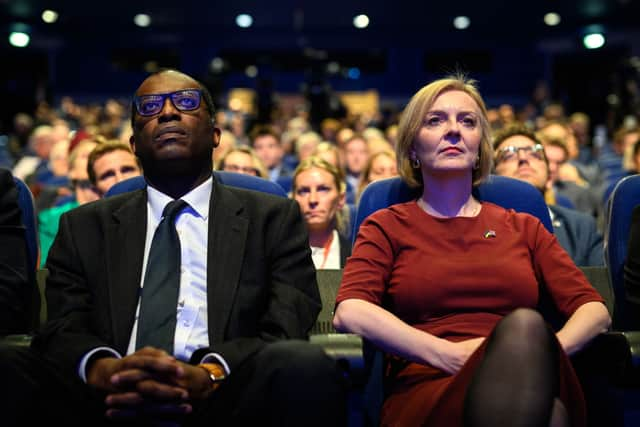

He said not proceeding with the abolition will allow the Government to “focus on delivering the major parts of our growth package,” listing the Energy Price Guarantee, further tax cuts, and “driving supply side reforms - including accelerating major infrastructure projects - to get Britain moving.”
Other tax cuts announced include cuts to stamp duty, a reversal of the planned increases to National Insurance and corporation tax, and, as mentioned, a cut to the basic rate of income tax.
Has Liz Truss U-turned on policies before?
Advertisement
Hide AdAdvertisement
Hide AdAlthough this is her first U-turn since holding the keys to Number 10 Downing Street, it’s not the only U-turn Ms Truss has made over the past few months.
During the Tory leadership race, one of the Prime Minister’s most talked about policies was her plan to cut public sector pay for workers outside of southeast England. At a hustings event in Exeter, she pledged to end national salary deals and instead pay public sector workers differently depending on the region they work in, saying it would create a “leaner, more efficient, more focused Whitehall.”
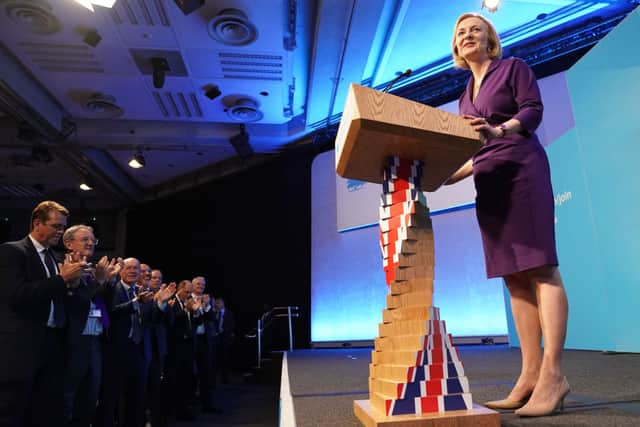

But just 12 hours later, amidst backlash from both the Labour Party and Ms Truss’ fellow Tory MPs, her campaign team said the proposal would no longer be taken forward - with a spokesperson commenting that there had been a “wilful misrepresentation of our campaign”.
Speaking to the BBC in Dorset, the Prime Minister also said: “I’m afraid that my policy on this has been misrepresented. I never had any intention of changing the terms and conditions of teachers and nurses.
“But what I want to be clear about now is I will not be going ahead with the regional pay boards, that is no longer my policy.”
Comment Guidelines
National World encourages reader discussion on our stories. User feedback, insights and back-and-forth exchanges add a rich layer of context to reporting. Please review our Community Guidelines before commenting.
